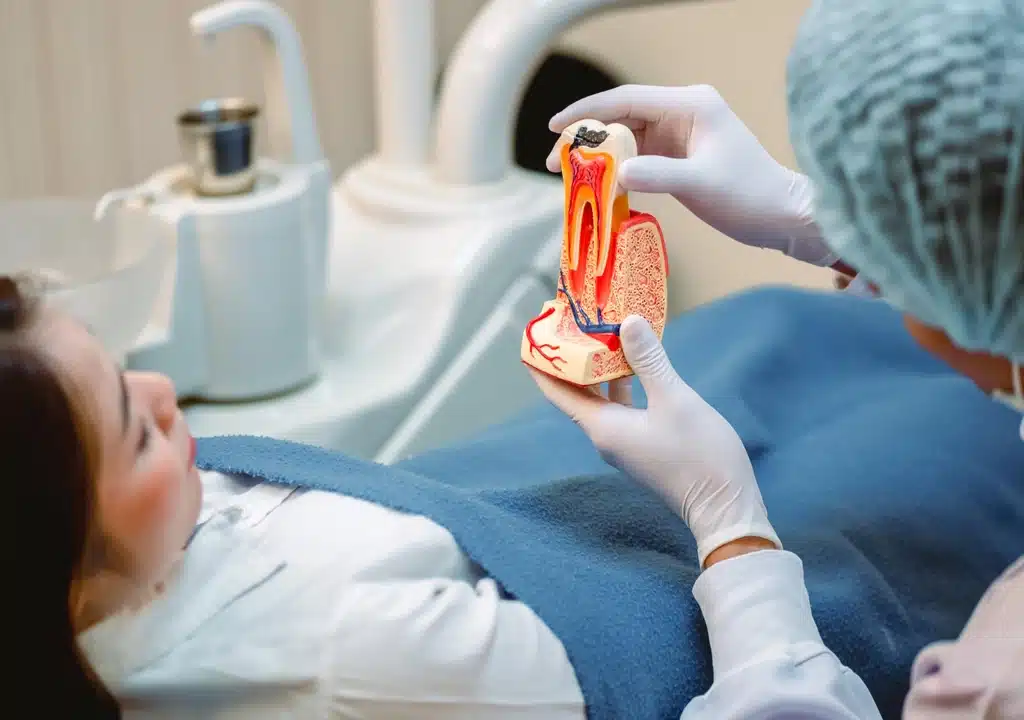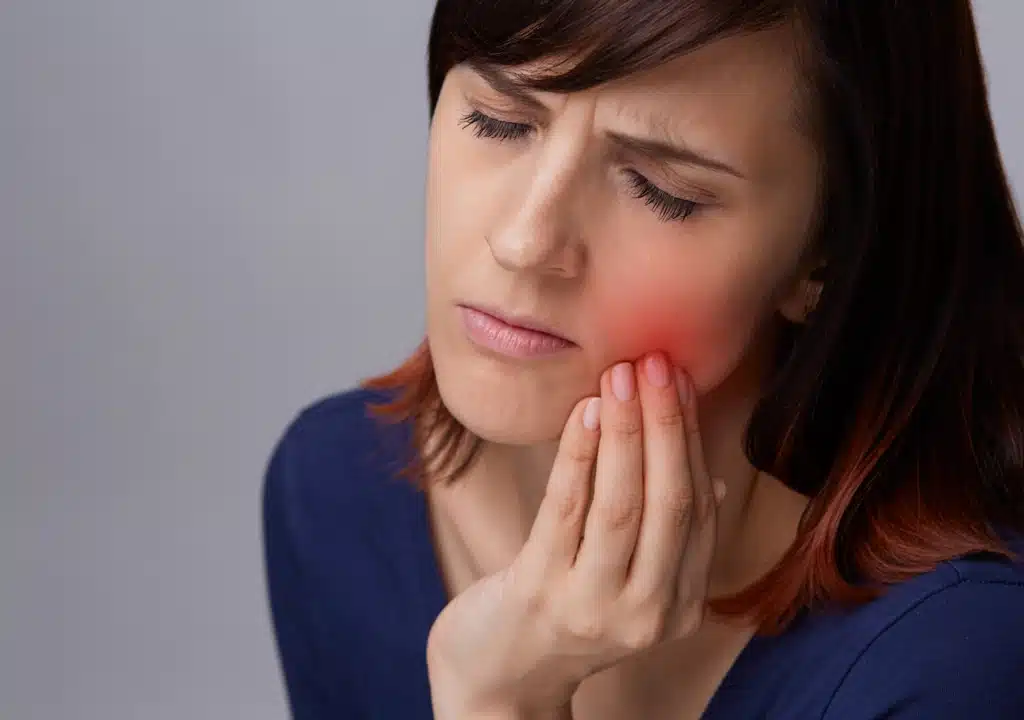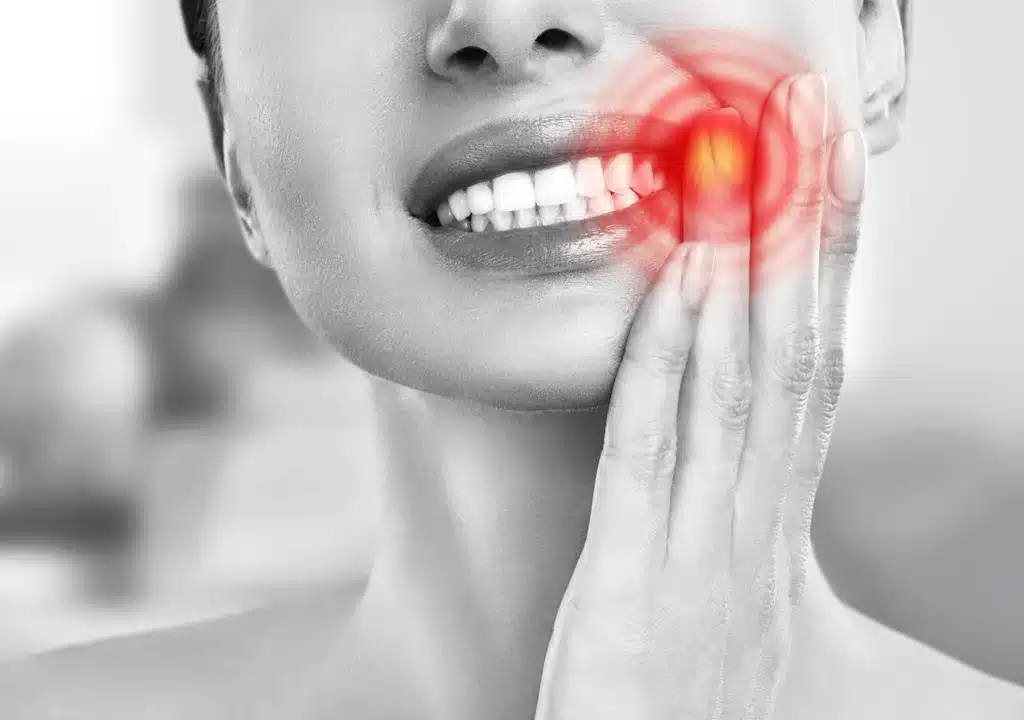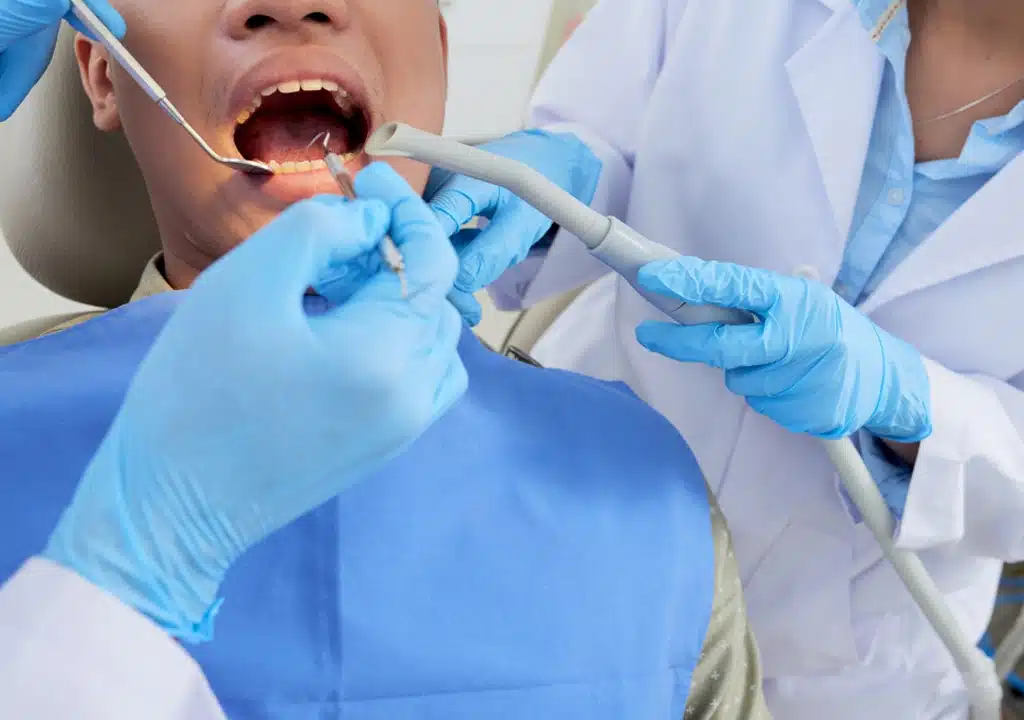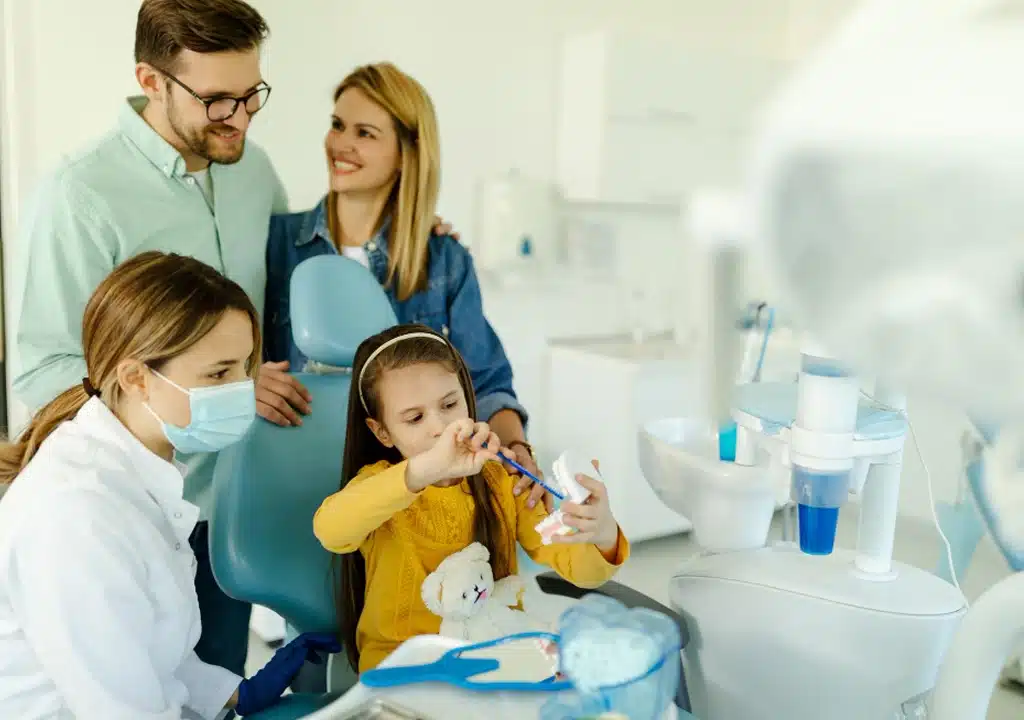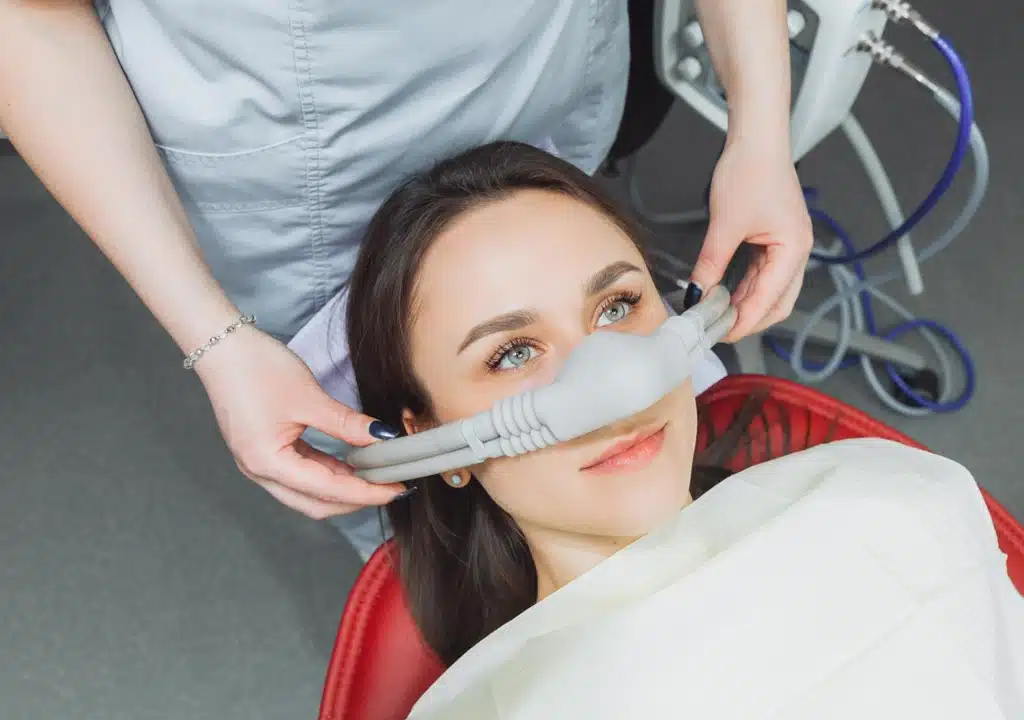Cosmetic dentistry in Ontario merges the art of beauty with the science of dental health to offer tailor-made solutions for those seeking an improved smile. Whether whitening treatments or complete smile makeovers, Ontario’s dental professionals possess the skills and tools to reshape and revitalize your smile.
Embrace Your Natural Beauty Enhancing Your Smile with Cosmetic Dentistry
Want a smile that shines from within? Cosmetic dentistry can enhance your natural beauty for a confidence boost. Subtle tweaks or a complete makeover – it’s your choice!
Beyond the Fear: Root Canals – A Gentle Guide to Saving Your Smile
A root canal isn’t a fear to flee from but a therapeutic ally, a necessary step to preserving your precious smile. This gentle guide is your reassuring companion on a journey to understanding how a root canal can be the hero of your oral health rather than the villain it is often mistaken for.
From Chipped Teeth to Severe Pain: Your Emergency Dental Solutions in London, Ontario!
Dental emergencies can strike when you least expect them. Whether it’s a sudden toothache, a chipped tooth, or an accident that has left your smile in disrepair, the immediate need for professional care becomes undeniable-and urgent.
Cosmetic Dentistry in London, Ontario Enhancing Smiles in The Forest City
In this ever-evolving world, one thing remains constant – the importance of oral health. In London, Ontario, family dentistry plays a vital role in maintaining the oral health of the community across all age groups. This article ventures into the breadth and depth of family dentistry, with a particular emphasis on the services offered by Apple Tree Dental, a comprehensive dental care provider.
Comprehensive Family Dentistry in London, Ontario A Guide to Exceptional Dental Care
In this ever-evolving world, one thing remains constant – the importance of oral health. In London, Ontario, family dentistry plays a vital role in maintaining the oral health of the community across all age groups. This article ventures into the breadth and depth of family dentistry, with a particular emphasis on the services offered by Apple Tree Dental, a comprehensive dental care provider.
Understanding Emergency Dentistry
Blog
When Toothache Strikes at Midnight: Understanding Emergency Dentistry
When we think about emergency medicine, dentistry may not be the first thing that comes to mind. But anyone who’s experienced a sudden toothache or a dental injury can attest to the importance of prompt, effective care. This is where emergency dentistry comes into play.
1. What is Emergency Dental Care?
- Emergency dental care is an essential part of the dental field aimed at addressing severe oral issues that require immediate attention. Situations that may necessitate emergency dental care include intense toothache, gum abscess, knocked-out teeth, lost crowns or fillings, fractured or dislodged dental work, and jaw injuries.
-
Key Considerations:
-
- Emergency dental care is crucial in preventing further damage and severe
- This type of care covers several issues, such as severe toothache, gum abscesses, knocked-out teeth, lost crowns or fillings, fractured dental work, and jaw injuries.
- Not all dental issues require emergency Understanding this distinction can save you unnecessary stress and expense.
2. When Do You Need Emergency Dental Services?
- Spotting the signs of a dental emergency can be the difference between saving or losing a tooth. Sharp, intense tooth pain, bleeding or swelling, loose teeth, severe infection, and trauma to the face or mouth are key indicators that you need emergency dental services. Knowing these signs can ensure you seek help promptly and avoid further complications.
-
Key Considerations:
-
- Intense, prolonged tooth pain, bleeding gums, loose teeth, severe infection, and trauma to the face or mouth are indicators of dental emergencies.
- Delay seeking emergency dental services could lead to more severe complications, including permanent tooth loss.
- If you’re unsure whether your situation requires emergency attention, it’s better to err on caution and seek professional advice promptly.
3. What to Expect During Urgent Dental Care?
- When you visit an emergency dentist for urgent dental care, they assess your condition first. This may involve physical examination, x-rays, or other diagnostic tests. Based on the findings, the dentist will offer immediate treatment to alleviate pain, prevent infection, or repair damaged teeth or oral structures.
-
Key Considerations:
-
- The initial examination may involve physical checks, X-rays, or other diagnostic tests.
- Treatment could range from administration of antibiotics to control infection, drainage of abscesses, root canals, or even emergency extractions.
- Pain management is a critical part of urgent dental The dentist may use local anesthesia, sedatives, or pain medication.
4. The Importance of an Emergency Dentist:
- A reliable emergency dentist provides peace of mind, knowing that immediate treatment is available during dental A dedicated emergency dentist can provide comprehensive care beyond standard office hours to address urgent oral health needs.
-
Key Considerations:
-
- An emergency dentist is trained to handle dental emergencies beyond regular office hours.
- Such a dentist can provide immediate, effective treatment, thus saving you from prolonged discomfort and potential oral complications.
- Consider having the contact of an emergency dentist on hand, much like you would for a general practitioner or pediatrician.
5. Accessing Emergency Dental Care:
- When facing a dental emergency, it’s essential to reach out to a dentist immediately, even if it’s after-hours. Many dental service providers now offer 24/7 emergency dental care, demonstrating their commitment to patient
-
Key Considerations:
-
- Many dental service providers offer 24/7 emergency dental care
- Please research dental clinics offering emergency services in your area beforehand and note their contact information.
- Understand your insurance coverage for emergency dental services to avoid unexpected costs.
6. The Role and Responsiveness of Emergency Dental Services:
- Efficient emergency dental services ensure rapid emergency response and follow-up care for sustained oral After emergency care, the dentist will provide aftercare instructions to promote healing, prevent infection, and maintain oral health.
-
Key Considerations:
-
- Follow-up care is vital post-emergency treatment for healing, infection prevention, and oral health maintenance.
- Your dentist will provide aftercare instructions, including medication, dietary restrictions, and recommendations for future appointments.
7. Preventing Dental Emergencies:
- While not all dental emergencies can be prevented, following good oral hygiene practices and taking precautions during physical activities can reduce the chances Regular check-ups and prompt attention to oral discomfort can also help catch potential issues early before they escalate into emergencies.
-
Key Considerations:
-
- Regular dental check-ups can help detect potential issues before they become
- Brushing twice daily, flossing, and maintaining a balanced diet contribute to healthy teeth and gums.
- Wearing mouthguards during sports can protect against oral injuries.
The world of emergency dentistry plays an integral role in overall oral health. Being prepared and educated about emergency dental services can save you from extensive discomfort and potential tooth loss.
FAQ
What is Emergency Dental Care?
-
Q1: What qualifies as a dental emergency?
A1: A dental emergency is a situation that requires immediate medical attention. Examples include severe toothache, gum abscesses, knocked-out or broken teeth, lost crowns or fillings, fractured dental work, and jaw injuries.
-
Q2: Can I wait until my regular dentist is available?
A2: Delaying treatment for a dental emergency can lead to more severe complications, including permanent tooth loss. If you have a dental emergency, you should seek immediate medical
attention.
A1: A dental emergency is a situation that requires immediate medical attention. Examples include severe toothache, gum abscesses, knocked-out or broken teeth, lost crowns or fillings, fractured dental work, and jaw injuries.
A2: Delaying treatment for a dental emergency can lead to more severe complications, including permanent tooth loss. If you have a dental emergency, you should seek immediate medical
attention.
When Do You Need Emergency Dental Services?
-
Q1: What are the signs of a dental emergency?
A1: Signs of a dental emergency include intense, prolonged tooth pain, bleeding gums, loose teeth, severe infection, and trauma to the face or mouth.
-
Q2: Should I go to the ER for a dental emergency?
A2: While some dental emergencies require immediate attention at an ER, many can be effectively handled by an emergency dentist. If you’re unsure, contact your nearest dental emergency service.
A1: Signs of a dental emergency include intense, prolonged tooth pain, bleeding gums, loose teeth, severe infection, and trauma to the face or mouth.
A2: While some dental emergencies require immediate attention at an ER, many can be effectively handled by an emergency dentist. If you’re unsure, contact your nearest dental emergency service.
What to Expect During Urgent Dental Care?
-
Q1: What will happen during an urgent dental care visit?
A1: The dentist will first assess your condition through physical checks, X-rays, or other diagnostic tests. Then, they will immediately alleviate pain, prevent infection, or repair damaged oral structures.
-
Q2: Will urgent dental care hurt?
A2: Pain management is a critical part of urgent dental care. Your dentist will use local anesthesia, sedatives, or pain medication to minimize discomfort during treatment.
A1: The dentist will first assess your condition through physical checks, X-rays, or other diagnostic tests. Then, they will immediately alleviate pain, prevent infection, or repair damaged oral structures.
A2: Pain management is a critical part of urgent dental care. Your dentist will use local anesthesia, sedatives, or pain medication to minimize discomfort during treatment.
The Importance of an Emergency Dentist
-
Q1: How can an emergency dentist help me?
A1: A reliable emergency dentist can provide prompt and effective treatment during dental emergencies, saving you from prolonged discomfort and potential oral complications.
-
Q2: How can I find a reliable emergency dentist?
A2: Check for local dental clinics that offer emergency services. Word of mouth can also be an effective way to find a reliable emergency dentist.
A1: A reliable emergency dentist can provide prompt and effective treatment during dental emergencies, saving you from prolonged discomfort and potential oral complications.
A2: Check for local dental clinics that offer emergency services. Word of mouth can also be an effective way to find a reliable emergency dentist.
Accessing Emergency Dental Care
-
Q1: How can I access emergency dental care?
A1: Many dental service providers offer 24/7 emergency dental care. It’s advisable to research beforehand and note the contact information of emergency dental clinics in your area.
-
Q2: Will my insurance cover emergency dental care?
A2: Coverage for emergency dental services varies among insurance providers. It’s best to contact your insurer for specific information regarding your coverage.
A1: Many dental service providers offer 24/7 emergency dental care. It’s advisable to research beforehand and note the contact information of emergency dental clinics in your area.
A2: Coverage for emergency dental services varies among insurance providers. It’s best to contact your insurer for specific information regarding your coverage.
The Role and Responsiveness of Emergency Dental Services
-
Q1: Is follow-up care necessary after an emergency dental treatment?
A1: Yes. Follow-up care is critical for healing, infection prevention, and oral health maintenance post-emergency treatment.
-
Q2: What does aftercare involve?
A2: Aftercare may include medication, dietary restrictions, and follow-up appointments as your dentist recommends.
A1: Yes. Follow-up care is critical for healing, infection prevention, and oral health maintenance post-emergency treatment.
A2: Aftercare may include medication, dietary restrictions, and follow-up appointments as your dentist recommends.
Preventing Dental Emergencies
-
Q1: Can I prevent dental emergencies?
A1: While not all dental emergencies are preventable, good oral hygiene and regular dental check-ups can significantly reduce the risk.
-
Q2: What are some tips for preventing dental emergencies?
A2: Brush and floss daily, maintain a balanced diet, wear mouthguards during sports, and schedule regular dental check-ups to keep your teeth and gums healthy.
A1: While not all dental emergencies are preventable, good oral hygiene and regular dental check-ups can significantly reduce the risk.
A2: Brush and floss daily, maintain a balanced diet, wear mouthguards during sports, and schedule regular dental check-ups to keep your teeth and gums healthy.
Conclusion:
Emergency dentistry is a crucial aspect of dental healthcare that is often overlooked until needed. You can proactively handle these situations by understanding what constitutes a dental emergency, recognizing the signs, and knowing the course of action. Moreover, having a reliable emergency dentist can differentiate between temporary discomfort and long-term oral health implications.
Now that you know the importance of emergency dentistry remember to approach your dental health with the same urgency you would any other aspect of your health. Don’t wait until the clock strikes twelve with a toothache – ensure you have access to emergency dental services.
Ready to take a step towards better oral health? Contact us at Apple Tree Dental for all your dental needs. Call us at (519) 641-1411, email us at info@appletreedental.ca, or visit our website www.appletreedental.ca for more information.
Because at Apple Tree Dental, your oral health isn’t just our job – it’s our priority. Don’t let your smile flicker in the face of a dental emergency. Remember, in the world of teeth, every second counts.
What Are The Types Of Dental Emergencies
This article will discuss the different types of dental emergencies, their features, and why prompt attention is necessary. We’ll provide you with actionable tips and advice on handling such situations, thus equipping you with the knowledge to deal with these unexpected challenges.
What Is The Difference Between Family Dentistry And General Dentistry
Choosing the right dental healthcare provider for you and your family is a decision that shouldn’t be taken lightly. Reliable dental care is essential to maintaining overall health for all family members, regardless of age. However, family dentistry and general dentistry can often need clarification.
When Do Dentists Use Laughing Gas?
Laughing gas, medically known as nitrous oxide, is a safe and well-established method used in dental procedures to relieve pain and anxiety. Often misunderstood, this common soothing practice can be a game-changer in making dental visits more comfortable. This article delves into the various instances when dentists use laughing gas.



